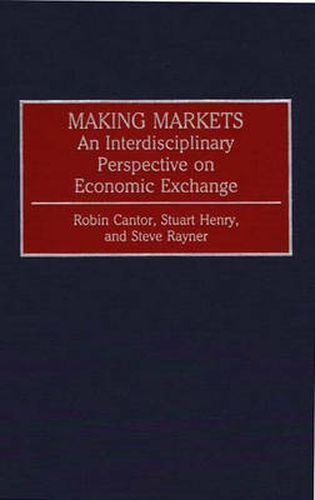Readings Newsletter
Become a Readings Member to make your shopping experience even easier.
Sign in or sign up for free!
You’re not far away from qualifying for FREE standard shipping within Australia
You’ve qualified for FREE standard shipping within Australia
The cart is loading…






This book considers the social and economic arrangements that would be necessary for rational mechanisms of exchange and distribution to emerge, function, and remain viable if extreme conditions produced an absence or the severe destruction of an institutional infrastructure and of resource endowments. Written by an economist, a sociologist, and an anthropologist, the study confronts such radical circumstances from an interdisciplinary perspective, thereby rethinking and revising some cherished conventional economic and social assumptions.
At one level, the book discusses the kinds of market structures that would be viable under different socioeconomic conditions. At another level, the analysis questions monolithic approaches to applied economic analysis and policy based on what works under existing conditions. To illustrate the applicability of theoretical modeling, the authors consider two policy areas: economic recovery from a major societal disaster and economic development. The book will be of particular interest to students of applied economics, but it will also be of interest to those concerned with social ecology, economy and society, economic history, economic anthropology, applied sociology, and developmental studies. It will be especially valuable to scholars in Eastern European and socialist economic systems that are currently seeking to establish market economies.
$9.00 standard shipping within Australia
FREE standard shipping within Australia for orders over $100.00
Express & International shipping calculated at checkout
This book considers the social and economic arrangements that would be necessary for rational mechanisms of exchange and distribution to emerge, function, and remain viable if extreme conditions produced an absence or the severe destruction of an institutional infrastructure and of resource endowments. Written by an economist, a sociologist, and an anthropologist, the study confronts such radical circumstances from an interdisciplinary perspective, thereby rethinking and revising some cherished conventional economic and social assumptions.
At one level, the book discusses the kinds of market structures that would be viable under different socioeconomic conditions. At another level, the analysis questions monolithic approaches to applied economic analysis and policy based on what works under existing conditions. To illustrate the applicability of theoretical modeling, the authors consider two policy areas: economic recovery from a major societal disaster and economic development. The book will be of particular interest to students of applied economics, but it will also be of interest to those concerned with social ecology, economy and society, economic history, economic anthropology, applied sociology, and developmental studies. It will be especially valuable to scholars in Eastern European and socialist economic systems that are currently seeking to establish market economies.